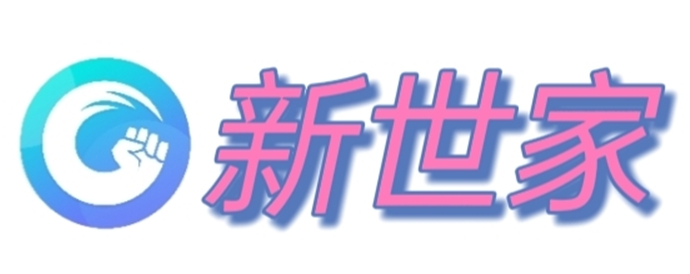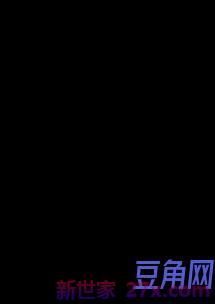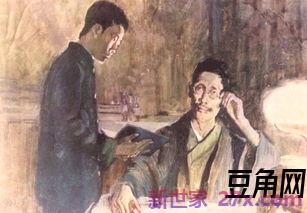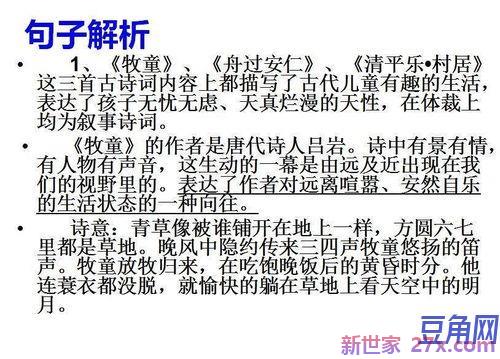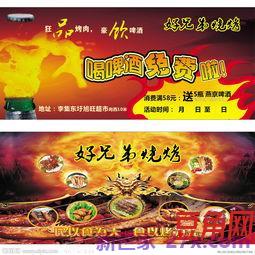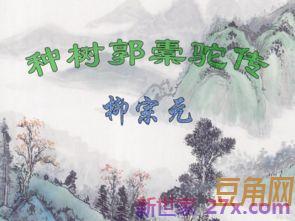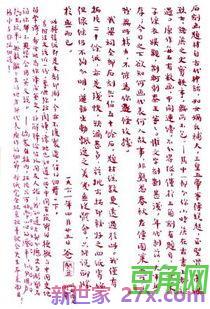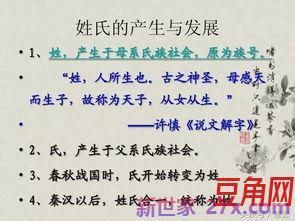|
微信分身24小时自助商城:
微信分身24小时自助商场:
微信分身24小时自助商场: |
1.初一上英语句型归纳
Starter unit 1 Good morning !1. Good morning! 早上好!2. Good afternoon! 下午好!3. Good evening! 晚上好!4. Good morning(afternoon/Evening) to you! 你早上好!5. ---How are you? 你好吗?---Fine, thanks/ thank you. And you?好,谢谢。
你呢? Start unit 2 What's this in English? 1. ---What's this/that in English? 这个/那个用英语怎么说?---It's a/an…那是。
2. ---How do you spell it/How to spell it?如何拼写它呢?---K-E-Y.Start unit 3 What color is it?---What color is it?那是什么颜色?---It's …Unit 1 My name's Gina.Ⅰ.重点词语:1. my name 我的名字2. your name 你的名字3. last name/ family name 姓4. first name/ given name 名5. ID card 身份证6. school ID card 学生卡7. answer the questions 回答问题8. telephone/phone number 电话号码9. address book 电话号码薄Ⅱ.重点句型:1. ---What's your name?你叫什么?---My name is…/I'm…我是。
2. Nice to meet you. / I'm gladto meet you. 见到你很高兴。3. ---What's your telephone/phone number? 你的电话是多少?---My telephone/ phone number is… 我的电话是。
4. ---What's your family/last name? 你的姓是什么?---My family/last name is…我姓。
5. ---What's your given/first name?你的名是什么?---My given/first name is…我的名是。
Unit 2 Is this your pencil?Ⅰ.重点词语:1. your pencil case/pencil box 你的铅笔盒2. my eraser 我的橡皮3. her notebook 她的笔记本4. his backpack 他的双肩包5. Mike's dictionary 迈克的字典6. my math book 我的数学书7. in English 用英语8. in Chinese用汉语9. lost and found 失物招领10. computer game 电脑游戏11. a set of keys 一串钥匙12. look for Ⅱ重要句型:1. Is this your pencil? Yes, it is.这是你的铅笔吗?是我的。2. Is that her eraser? No, it isn't.那是她的橡皮吗?不,不是。
3. Is it a watch? Yes, it is. / No, it isn't.4. ---Are these/those your books?这些/那些是你的书吗? ---Yes,they are./No,they aren't.5. ---What's this/that in English?---It's…6. ---What are these/those in English? 这些/那些用英语怎么说?7. Here you are. 给你。8. That's all right. 不客气。
9. Call Li Ping at 8225674.给李萍打8225674。Unit 3 This is my sister. Ⅰ.重点词语:1. my parents 我的父母 2. his brother 他的哥哥/弟弟3. your friend 你的/你们的朋友 4. your photo 你的/你们的照片5. family photo 全家福6. family tree 家谱7. pen friend/ pen pal 笔友8. thanks for… 为。
而感谢9. …very much 非常。
10. look at11. talk about… 谈论关于。
重点句型:1. Is this your sister? No, it isn't.2. Is that your brother? Yes, it is.3. This is my aunt.4. ---Are these/those his brothers?---Yes, they are. / No, they aren't.5. Those are my sisters.6. That is her uncle.7. Thanks for the photo of your family./Thanks for your family photo.感谢你们家的全家福。Unit 4 Where's my backpack? Ⅰ.重点词语:1. under the table 在桌子底下2. on the dresser 在梳妆台上3. in the backpack 在双肩包里4. next to the baseball 在棒球的旁边5. behind the computer 在电脑的后面6. my ideal room 我的理想房间7. between the bookcase and the desk 在书柜和桌子之间8. take…to… 把…带到…9. take away… 带走…10. bring sth. to sb. 把…带给…重点句型:1. ---Where's the baseball?---It's in the backpack.2. ---Where are his keys?---They're on the dresser.3. Please take these things to your brother.请把这些东西带给你的弟弟。
4. There are pictures on the wall.5. Can you bring some things to school?6. I need my hat. 我需要我的帽子。Unit 5 Do you have a soccer ball?Ⅰ.重点词语:1. tennis racket 网球拍2. baseball bat 棒球拍3. soccer ball 英式足球4. play tennis 玩网球5. welcome to 欢迎来。
6. play computer games 玩电脑游戏7. watch TV 看电视8. play sports/ do sports 做运动9. every day 每天10. a great sports collection 一些球类收藏品1. ---Do you have a tennis racket?---Yes, I do./ No, I don't.2. ---Does he have a tennis racket?---Yes, she does./No, she doesn't.3. Let's … 让我们一起…eg:Let's play baseball.让我们一起玩棒球。4. That sounds good.那听起来不错哦。
5. I don't have … 我没有…Eg. I don't have a basketball.6. But he doesn't play sports —he only watches them on TV.7. She plays/does sports every day.Unit 6 Do you like bananas? Ⅰ.重点词语:1. French fries 署条2. ice cream 冰激凌3. running star 跑步明星4. lots of 许多,大量5. healthy food 健康食品6. unhealthy food 不健康食品7. make a list 列表,制表8. eat/have breakfast 吃早餐9. for breakfast 对于早餐来说重要句型:1. ---Do you like salad? ---Yes,I do./No,I don't.2. ---Does she/he like salad?---Yes,I do./No,I don't. 3. He/She doesn't like salad.否定句4. He/She likes salad.肯定句5. I don't like eggs. 6. For dinner, she/he has chicken andFrench fries.Unit 7 How much are 。
2.人教版初一英语上册重点句型和单词,词组
新目标英语初一上册语法重点词汇句型 A)、名词的数 我们知道名词可以分为可数名词和不可数名词,而不可数名词它没有复数形式,但可数名词却有单数和复数之分,复数的构成如下: 一)在后面加s。
如:fathers, books, Americans, Germans, apples, bananas 二)x, sh, ch, s, tch后加es。如:boxes, glasses, dresses, watches, wishes, faxes 三)1)以辅音字母加y结尾的变y为i再加es 如:baby-babies, family-families, duty-duties, comedy-comedies, documentary-documentaries, story-stories 2)以元音字母加y结尾的直接加s。
如:day-days, boy-boys, toy-toys, key-keys, ways 四)以o结尾加s(外来词)。如:radios, photos, 但如是辅音加o的加es:如: tomatoes西红柿, potatoes马铃薯 五)以f或fe结尾的变f为v再加es(s)。
如:knife-knives, wife-wives, half-halves, shelf-shelves, leaf-leaves, yourself-yourselves 六)单复数相同(不变的)有:fish, sheep, deer鹿子, Chinese, Japanese 七)一般只有复数,没有单数的有:people,pants, shorts, shoes, glasses, gloves, clothes, socks 八)单词形式不变,既可以是单数也可以是复数的有:police警察局,警察, class班,同学, family家,家庭成员 九)合成的复数一般只加主要名词,多数为后一个单词。如:action movie-action movies, pen pal-pen pals; 但如果是由man或woman所组成的合成词的复数则同时为复数。
如:man doctor-men doctors, woman teacher-women teachers 十)有的单复数意思不同。如:fish鱼 fishes鱼的种类, paper纸 papers报纸,卷子,论文, work工作 works作品,工厂, glass玻璃 glasses玻璃杯,眼镜, orange桔子水 oranges橙子, light光线 lights灯, people人 peoples民族, time时间 times时代, 次数, chicken 鸡肉 chickens 小鸡 十一) 单个字母的复数可以有两种形式直接加s或's。
如:Is (I's), Ks (K's)。但如是缩略词则只加s。
如:IDs, VCDs, SARs 十二) 特殊形式的有:child-children, man-men, woman-women, foot-feet, mouse-mice, policeman-policemen, Englishman-Englishmen B)名词的格 当我们要表示某人的什么东西或人时,我们就要使用所有格形式。构成如下: 一)单数在后面加's。
如:brother's, Mike's, teacher's 二)复数以s结尾的直接在s后加',如果不是以s结尾的与单数一样处理。如:Teachers' Day教师节, classmates'; Children's Day六一节, Women's Day三八节 三)由and并列的名词所有时,如果是共同所有同一人或物时,只加最后一个's,但分别拥有时却分别按单数形式处理。
如:Mike and Ben's room迈克和本的房间(共住一间),Mike's and Ben's rooms迈克和本的房间(各自的房间) 2、代词 项目 人称代词 物主代词 指示代词 反身代词 人称 主格 宾格 形容词 名词性 第一人称 单数 I me my mine myself 复数 we us our ours ourselves 第二人称 单数 you you your yours yourself 复数 you you your yours yourselves 第三人称 单数 she her her hers herself he him his his himself it it its its this that itself 复数 they them their theirs these those themselves 3、动词 A) 第三人称单数 当动词是第三人称单数时,动词应该像名词的单数变动词那样加s,如下: 一)一般在词后加s。如:comes, spells, waits, talks, sees, dances, trains 二)在x, sh, ch, s, tch后加es。
如:watches, washes, wishes, finishes 三)1)以辅音字母加y结尾的变y为i再加es。如:study-studies, hurry-hurries, try-tries 2)以元音字母加y结尾的直接加s。
如:plays, says, stays, enjoys, buys 四)以o结尾加es。如:does, goes 五)特殊的有:are-is, have-has B) 现在分词 当我们说某人正在做什么事时,动词要使用分词形式,不能用原形,构成如下: 一)一般在后加ing。
如:spell-spelling, sing-singing, see-seeing, train-training, play-playing, hurry-hurrying, watch-watching, go-going, do-doing 二)以不发音e的结尾的去掉e再加ing。如:dance-dancing, wake-waking, take-taking, practice-practicing, write-writing, have-having 三)以重读闭音节结尾且一个元音字母+一个辅音字母(注意除开字母组合如show –showing, draw-drawing)要双写最后的辅音字母再加ing。
如:put-putting, run-running, get-getting, let-letting, begin-beginning 四)以ie结尾的变ie为y再加ing。如:tie-tying系 die-dying死 lie-lying 位于 4、形容词的级 我们在对两个或以上的人或物进行对比时,则要使用比较或最高级形式。
构成如下: 一) 一般在词后加er或est(如果是以e结尾则直接加r或st)。如:greater-greatest, shorter –shortest, taller –tallest, longer –longest, nicer- nicest, larger -largest 二)以重读闭音节结尾且1个元音字母+1个辅音字母(字母组合除外,如few-fewer fewest)结尾的双写结尾的辅音再加er /est。
如:big-bigger biggest, red-redder reddest, hot-hotter hottest 三) 以辅音字母+y结尾的变y为i加er/est。如:happy-happier happiest, sorry-sorrier sorriest, friendly-。
3.人教版初一上册的英语句型总结
七年级 (上)重点句型和词组 七年级(上) Uints 1-6I.重点句型StarterGood morning/afternoon/evening. Good morning/afternoon/evening.How are you? I'm fine,/OK,thanks. Fine,thanks.What's this in English? It's a map. It's V.Spell it please. K-E-Y.What color is it/the key? It's blue. The key is yellow.Hello, Frank. Hello/Hi, Eric.Unit 1 My name is Gina.What's your name? My name is Jenny. I'm Jenny. Jenny.Nice to meet you. Nice to meet you , too.What's his name? His name is Jenny. Jenny.What's her name? Her name is Linda.. Linda.What's your first name? My first name is Jack. Jack.What's your last/family name? My last/family name is Green. It's Green.What's your/his/her phone number? My /His/Her phone number is 234-4567It's 281-9176.Unit 2 Is this your pencil?Is that/this/it your backpack? Yes, it is. No, it isn't . It's his backpack.This/That is my eraser.How do you spell it/pen? P-E-N.Call Allan at 486-67895 Call 685-6098 Call Mary. Phone # 235-7865.Is that your computer game in the lost and found case? Yes, it is. No, it isn't.Unit 3 This is my sister.That/This is his sister.These/Those are my two brothers.Is she your friend? Yes, she is. No, she isn't.Is he your brother? Yes, he is. No, he isn't.Thanks for the photo of your family.Here is my family photo.Who's your sister? This/She is my sister.。
4.初一上英语句型归纳
Starter unit 1 Good morning !1. Good morning! 早上好!2. Good afternoon! 下午好!3. Good evening! 晚上好!4. Good morning(afternoon/Evening) to you! 你早上好!5. ---How are you? 你好吗?---Fine, thanks/ thank you. And you?好,谢谢。
你呢? Start unit 2 What's this in English? 1. ---What's this/that in English? 这个/那个用英语怎么说?---It's a/an…那是。
2. ---How do you spell it/How to spell it?如何拼写它呢?---K-E-Y.Start unit 3 What color is it?---What color is it?那是什么颜色?---It's …Unit 1 My name's Gina.Ⅰ.重点词语:1. my name 我的名字2. your name 你的名字3. last name/ family name 姓4. first name/ given name 名5. ID card 身份证6. school ID card 学生卡7. answer the questions 回答问题8. telephone/phone number 电话号码9. address book 电话号码薄Ⅱ.重点句型:1. ---What's your name?你叫什么?---My name is…/I'm…我是。
2. Nice to meet you. / I'm gladto meet you. 见到你很高兴。3. ---What's your telephone/phone number? 你的电话是多少?---My telephone/ phone number is… 我的电话是。
4. ---What's your family/last name? 你的姓是什么?---My family/last name is…我姓。
5. ---What's your given/first name?你的名是什么?---My given/first name is…我的名是。
Unit 2 Is this your pencil?Ⅰ.重点词语:1. your pencil case/pencil box 你的铅笔盒2. my eraser 我的橡皮3. her notebook 她的笔记本4. his backpack 他的双肩包5. Mike's dictionary 迈克的字典6. my math book 我的数学书7. in English 用英语8. in Chinese用汉语9. lost and found 失物招领10. computer game 电脑游戏11. a set of keys 一串钥匙12. look for Ⅱ重要句型:1. Is this your pencil? Yes, it is.这是你的铅笔吗?是我的。2. Is that her eraser? No, it isn't.那是她的橡皮吗?不,不是。
3. Is it a watch? Yes, it is. / No, it isn't.4. ---Are these/those your books?这些/那些是你的书吗? ---Yes,they are./No,they aren't.5. ---What's this/that in English?---It's…6. ---What are these/those in English? 这些/那些用英语怎么说?7. Here you are. 给你。8. That's all right. 不客气。
9. Call Li Ping at 8225674.给李萍打8225674。Unit 3 This is my sister. Ⅰ.重点词语:1. my parents 我的父母 2. his brother 他的哥哥/弟弟3. your friend 你的/你们的朋友 4. your photo 你的/你们的照片5. family photo 全家福6. family tree 家谱7. pen friend/ pen pal 笔友8. thanks for… 为。
而感谢9. …very much 非常。
10. look at11. talk about… 谈论关于。
重点句型:1. Is this your sister? No, it isn't.2. Is that your brother? Yes, it is.3. This is my aunt.4. ---Are these/those his brothers?---Yes, they are. / No, they aren't.5. Those are my sisters.6. That is her uncle.7. Thanks for the photo of your family./Thanks for your family photo.感谢你们家的全家福。Unit 4 Where's my backpack? Ⅰ.重点词语:1. under the table 在桌子底下2. on the dresser 在梳妆台上3. in the backpack 在双肩包里4. next to the baseball 在棒球的旁边5. behind the computer 在电脑的后面6. my ideal room 我的理想房间7. between the bookcase and the desk 在书柜和桌子之间8. take…to… 把…带到…9. take away… 带走…10. bring sth. to sb. 把…带给…重点句型:1. ---Where's the baseball?---It's in the backpack.2. ---Where are his keys?---They're on the dresser.3. Please take these things to your brother.请把这些东西带给你的弟弟。
4. There are pictures on the wall.5. Can you bring some things to school?6. I need my hat. 我需要我的帽子。Unit 5 Do you have a soccer ball?Ⅰ.重点词语:1. tennis racket 网球拍2. baseball bat 棒球拍3. soccer ball 英式足球4. play tennis 玩网球5. welcome to 欢迎来。
6. play computer games 玩电脑游戏7. watch TV 看电视8. play sports/ do sports 做运动9. every day 每天10. a great sports collection 一些球类收藏品1. ---Do you have a tennis racket?---Yes, I do./ No, I don't.2. ---Does he have a tennis racket?---Yes, she does./No, she doesn't.3. Let's … 让我们一起…eg:Let's play baseball.让我们一起玩棒球。4. That sounds good.那听起来不错哦。
5. I don't have … 我没有…Eg. I don't have a basketball.6. But he doesn't play sports —he only watches them on TV.7. She plays/does sports every day.Unit 6 Do you like bananas? Ⅰ.重点词语:1. French fries 署条2. ice cream 冰激凌3. running star 跑步明星4. lots of 许多,大量5. healthy food 健康食品6. unhealthy food 不健康食品7. make a list 列表,制表8. eat/have breakfast 吃早餐9. for breakfast 对于早餐来说重要句型:1. ---Do you like salad? ---Yes,I do./No,I don't.2. ---Does she/he like salad?---Yes,I do./No,I don't. 3. He/She doesn't like salad.否定句4. He/She likes salad.肯定句5. I don't like eggs. 6. For dinner, she/he has chicken andFrench fries.Unit 7 How much are th。
5.初一上册英语句型总结百度知道
初一动词加ing 及to do 专练(一)动词+doing1. Like / love doing eg: I like watching TV.2. enjoy doing eg: Peter enjoys reading books.3. find sb doing sth eg: You can find people eating hamburgers.4. have fun doing sth eg: We have great fun playing in the water.5. stop doing eg: Stop talking, please.6. Thanks for doing eg: Thanks for helping us.7. What about / How about doing eg: What about playing soccer ball?8. practice doing eg: I practice speaking English every day.9. be busy doing eg: I am busy doing my homehork.10. go doing eg: go shopping go swimming 11. do some doing eg: do some reading do some shopping 12. spend time doing eg: I spent two hours running yesterday.13. remember doing forget doing I remember telling you many times about that. 14. 动词作主语 doing Eating fruits is good for our health.15. mind doing Do you mind my smoking here ?16. be + doing 正在进行时。
eg: I am doing my homework.17. No doing. No talking. No parking.(二)动词+do(原形)1. Watch sb do sth eg: Old Henry watched his dog play with a cat.2. help sb do sth eg: I helped him find his father.3. make/let sb do sth eg: His story makes me feel happy.4. can ,may,must , have to 等情态动词 I can swim.5. Please 后面。 Please stop talking. 6. 助动词后面。
Don't speak any more. He didn't/ doesn't do his homework.(三)动词to do1. tell sb to do sth eg: He told me to come back soon.2. want to do sth eg: I want to visit Beijing.3. decide to do sth eg: They decided to play tennis last weekend.4. have to do sth eg: We have to dean classrooms after school.5. It's time to do sth eg: It's time to go home now.7. ask sb to do eg: He asked me to help him.8. remember / forget to do Remember to do your homework. Don't forget your homework.9. Would like to do I would like to have some rice . 10. Stop to do we are tired , let's stop to have a rest. (四)其他知识点1. Some与any的区别:Some 一般情况下用于肯定句/any 一般用于否定句/疑问句 eg: I'd like some dumplings./Do you have any brothers?2. also, too 也、太,与either 的区别:also 用于句中,too 用于句尾,either 用于 否定句中。
6.求初一上册英语所有知识点总结越全越好
初一上册英语所有知识点及练习:【知识梳理】 I. 重点短语1. Sit down2. on duty3. in English4. have a seat5. at home6. look like7. look at8. have a look9. come on10. at work11. at school12. put on13. look after14. get up15. go shoppingII. 重要句型1. help sb. do sth.2. What about…?3. Let's do sth.4. It's time to do sth.5. It's time for …6. What's…? It is…/ It's…7. Where is…? It's….8. How old are you? I'm….9. What class are you in? I'm in….10. Welcome to….11. What's …plus…? It's….12. I think…13. Who's this? This is….14. What can you see? I can see….15. There is (are) ….16. What colour is it (are they)? It's (They're)…17. Whose …is this? It's….18. What time is it? It's….III. 交际用语1. Good morning, Miss/Mr….2. Hello! Hi!3. Nice to meet you. Nice to meet you, too.4. How are you? I'm fine, thank you/thanks. And you?5. See you. See you later.6. Thank you! You're welcome.7. Goodbye! Bye!8. What's your name? My name is ….9. Here you are. This way, please.10. Who's on duty today?11. Let's do.12. Let me see.IV. 重要语法1. 动词be的用法;2. 人称代词和物主代词的用法;3. 名词的单复数和所有格的用法;4. 冠词的基本用法;5. There be句型的用法.【名师讲解】1. in/on 在表示空间位置时,in表示在某个空间的范围以内,on表示在某一个物体的表面之上.例如: There is a bird in the tree. 树上有只鸟. There is a picture on the wall. 墙上有张图.2. this/that/these/those (1)this常常用来指在时间、地点上更接近讲话人的人和事,these是this的复数形式.that常常用来指在时间、地点上离讲话人更远一点的人和事,those时that的复数形式.例如: You look in this box and I'll look in that one over there.你看看这个盒子,我去看那边的那个盒子. I want this car, not that car. 我想要这辆小汽车,不是那一辆. Take these books to his room, please. 请把这些书拿到他房间去. This is mine; that's yours. 这个是我的,那个是你的. These are apples; those are oranges. 这些是苹果,那些是橘子. (2)在打电话的用语中,this常常指的是我,that常常指的是对方.例如: This is Mary speaking. Who's that? 我是玛丽.你是谁?3. There be/ haveThere be "有",其确切含意为"某处或某时存在某人或某物."其结构是:There be + 某人或某物 + 表示地点或时间的状语.There be 后面的名词实际上是主语,be 动词的形式要和主语在数上保持一致,be动词后面的名词是单数或不可数名词时用is,名词是复数时用are.例如:(1) There is a big bottle of coke on the table. 桌上有一大瓶子可乐.(2) There is a doll in the box. 那个盒子里有个娃娃.(3) There are many apples on the tree. 那树上有许多苹果.总之,There be结构强调的是一种客观存在的"有".have表示"拥有,占有,具有",即:某人有某物(sb. have / has sth.).主语一般是名词或代词,与主语是所属关系.例如:(4) I have two brothers and one sister.我有两个兄弟,一个姐姐.(5) That house has four rooms.那所房子有四个房间.4. look/ see/ watch (1)look 表示“看、瞧”,着重指认真看,强调看的动作,表示有意识地注意看,但不一定看到,以提醒对方注意.,如:Look! The children are playing computer games. 瞧!孩子们在玩电脑游戏.Look! What's that over there? 看!那边那个是什么?单独使用是不及物动词,如强调看某人/物,其后接介词at,才能带宾语,如:He's looking at me.他正在看着我.(2)see强调“看”的结果,着重的是look这个动作的结果,意思是“看到”,see是及物动词,后面能直接跟宾语.如:What can you see in the picture? 你能在图上看到什么?Look at the blackboard. What did you see on it?看黑板!你看到了什么?(3)watch“观看,注视”,侧重于场面,表示全神贯注地观看、观察或注视某事务的活动,强调过程,常用于“看电视、看足球、看演出”等.如:Yesterday we watched a football match on TV.昨天我们从电视上看了一场足球比赛.4. put on/ / in put on意为“穿上,戴上”.主要指“穿上”这一动作, 后面接表示服装、鞋帽的名词.in 是介词,表示“穿着”强调状态.在句中可以做定语、标语和状语.如:It's cold outside, put on your coat. 外面冷,穿上你的外衣.He puts on his hat and goes out. 他戴上帽子,走了出去.The woman in a white blouse is John's mother.穿白色衬衣的那个妇女是John的妈妈.5. house/ home/familyhouse :“房子”,指居住的建筑物; Home: “家”,指一个人同家人共同经常居住的地方; Family: “家庭“,“家庭成员”.例如:Please come to my house this afternoon. 今天下午请到我家来.He is not at home. 他不在家.My family all get up early. 我们全家都起得很早.6. fine, nice, good, well四者都可用作形容词表示"好"之意,但前三者既可作表语又可作定语,而后者仅用作表语.主要区别在于: (1) fine指物时表示的是质量上的"精细",形容人时表示的是"身体健康",也 可以用来指。
7.人教版初一英语上册重点句型和单词,词组
1.How+adj.+(主+谓)!
What+(a/an)+n.(复)!
例:What beautiful flowers in the garden they are!
How beautiful the flowers in the garden are!
2.画线提问
(1)画的是adj,则用How作疑问词
(2)画的是n,则用What作疑问词
(3)画的是one,twenty,a hundred…则用How many作疑问词
(4)画的是time,则用When作疑问词
(5)画的是place,则用Where作疑问词
(6)画的是twice,three times a year,once a day…则用How often作疑问词
3.变换时态
过去----现在
现在----将来
将来----过去
4.两句并一句
例:I didn't have breakfast. I went to school.
变为:I went to school without having breakfast.
5.同义句转换
(1)not anything else = nothing else
(2)be not the same as = be different from
(3)also = too(句末) = as well
(4)look after…well = take good care of…
(5)by oneself = alone = on one's own
6.祈使句
例:Be late.
Don't be late.
7.反义疑问句
短语:
read comics
a wooden house
chat with sb.
climb a ladder
bunk beds
share sth with sb.
hold on
at least
air pollution
be close to
never mind
Beijing Opera
have a good time
show sb. around…
instead of
be surprised to do sth./at sth./+句子
jump out of
turn around
say to oneself(自言自语)
return sth. to…
take turn to do sth.
belong to sb.
happen to sb.
stay on the sea bed
…… ……
8.初一上册英语句型总结百度知道
初一动词加ing 及to do 专练(一)动词+doing1. Like / love doing eg: I like watching TV.2. enjoy doing eg: Peter enjoys reading books.3. find sb doing sth eg: You can find people eating hamburgers.4. have fun doing sth eg: We have great fun playing in the water.5. stop doing eg: Stop talking, please.6. Thanks for doing eg: Thanks for helping us.7. What about / How about doing eg: What about playing soccer ball?8. practice doing eg: I practice speaking English every day.9. be busy doing eg: I am busy doing my homehork.10. go doing eg: go shopping go swimming 11. do some doing eg: do some reading do some shopping 12. spend time doing eg: I spent two hours running yesterday.13. remember doing forget doing I remember telling you many times about that. 14. 动词作主语 doing Eating fruits is good for our health.15. mind doing Do you mind my smoking here ?16. be + doing 正在进行时。
eg: I am doing my homework.17. No doing. No talking. No parking.(二)动词+do(原形)1. Watch sb do sth eg: Old Henry watched his dog play with a cat.2. help sb do sth eg: I helped him find his father.3. make/let sb do sth eg: His story makes me feel happy.4. can ,may,must , have to 等情态动词 I can swim.5. Please 后面。 Please stop talking. 6. 助动词后面。
Don't speak any more. He didn't/ doesn't do his homework.(三)动词to do1. tell sb to do sth eg: He told me to come back soon.2. want to do sth eg: I want to visit Beijing.3. decide to do sth eg: They decided to play tennis last weekend.4. have to do sth eg: We have to dean classrooms after school.5. It's time to do sth eg: It's time to go home now.7. ask sb to do eg: He asked me to help him.8. remember / forget to do Remember to do your homework. Don't forget your homework.9. Would like to do I would like to have some rice . 10. Stop to do we are tired , let's stop to have a rest. (四)其他知识点1. Some与any的区别:Some 一般情况下用于肯定句/any 一般用于否定句/疑问句 eg: I'd like some dumplings./Do you have any brothers?2. also, too 也、太,与either 的区别:also 用于句中,too 用于句尾,either 用于 否定句中。
9.人教版初一上册的英语句型总结
七年级 (上)重点句型和词组
七年级(上) Uints 1-6
I.重点句型
Starter
Good morning/afternoon/evening. Good morning/afternoon/evening.
How are you? I'm fine,/OK,thanks. Fine,thanks.
What's this in English? It's a map. It's V.
Spell it please. K-E-Y.
What color is it/the key? It's blue. The key is yellow.
Hello, Frank. Hello/Hi, Eric.
Unit 1 My name is Gina.
What's your name? My name is Jenny. I'm Jenny. Jenny.
Nice to meet you. Nice to meet you , too.
What's his name? His name is Jenny. Jenny.
What's her name? Her name is Linda.. Linda.
What's your first name? My first name is Jack. Jack.
What's your last/family name? My last/family name is Green. It's Green.
What's your/his/her phone number? My /His/Her phone number is 234-4567
It's 281-9176.
Unit 2 Is this your pencil?
Is that/this/it your backpack? Yes, it is. No, it isn't . It's his backpack.
This/That is my eraser.
How do you spell it/pen? P-E-N.
Call Allan at 486-67895 Call 685-6098 Call Mary. Phone # 235-7865.
Is that your computer game in the lost and found case? Yes, it is. No, it isn't.
Unit 3 This is my sister.
That/This is his sister.
These/Those are my two brothers.
Is she your friend? Yes, she is. No, she isn't.
Is he your brother? Yes, he is. No, he isn't.
Thanks for the photo of your family.
Here is my family photo.
Who's your sister? This/She is my sister.
10.初一英语上册所有句型
这是网址:I believe you can do it!早上好 Good morning!下午好 Good afternoon!晚上好 Good evening!你好 Hello! / Hi!你好吗? How are you?我很好,谢谢! I'mfine, thanks.我很好,谢谢你! I'm OK, thank you.见到你很高兴 Nice to meet you.这是什么? What's this?那是什么? What's that?什么颜色 what color is / are …?用英语 in English这用英语这么说? What's this in English?一本英语书 an English book一个橙子 an orange请拼写它。
Spell it, please!我的名字是… my name is…我是… I am …你叫什么名字? What's your name?名字 first name姓氏 last / family name电话号码 telephone number你的电话号码是多少?What's your telephone number?一张身份证 an ID card一张学生证 a student ID card一串钥匙 aset of keys这串钥匙 this set of keys电子游戏 computer game玩电子游戏 play computer games两只手表 two watches一本英语字典 an English dictionary一本汉语字典 a Chinese dictionary一块橡皮 an eraser在背包里 in the backpack在铅笔盒里 in the pencil case如何拼写它? Howdo you spell it? How do you spell “book”? --- B-O-O-K, book.失物招领 lost and found在失物招领处 in the lost and found case请打电话给Mary。Pleasecall Mary.请打12345。
Pleasecall 12345.请打12345找Mary。 Pleasecall Mary at 12345.这是什么? What's this?那是什么? What's that?这/这些是 thisis / these are那/那些是 thatis / those are这是我的妈妈。
This is my mother.那是我的爸爸。 That is my father.这些是我的姐妹。
Theseare my sisters.那些是我的哥哥。 Thoseare my brothers.我父母亲 my parents我的祖父母 my grandparents一张…的照片 aphoto of…一张全家福照片 a photo of my family我的全家福 my family photo这里有一张我的全家福。
Here is a photo of my family. Here is my family photo.叔叔和阿姨 uncle and aunt他们是我的表兄妹。 They are my cousins.为…而感谢 thanks for…感谢你的帮助。
Thanks for your help.感谢你的来信。 Thanks for your letter.在哪里 Where is / are…?在沙发上 on the sofa在梳妆台上 on the dresser在墙上 on the wall在地板上 on the floor在书柜里 in the bookcase在课桌下 under the desk在床底下 under the bed在椅子底下 under the chair我不知道。
I don't know.一本数学书 a math book录像带 video tape一个闹钟 an alarm clock带来 bring…to…汤姆把书给我带来 Tombrings the book to me.带去 take…to…我把书该给我的妹妹。I take the book to my sister.我需要… I need….我需要一本书。
I need a book.这些东西 these things我需要这些东西。 Ineed these things.我有… I have…我有一个梦想 I have a dream.我没有… I don't have….我没有一个书包 I don't have a schoolbag.你有…吗? Do you have…?你有一个手表吗? Doyou have a watch?一个足球 a soccer ball踢足球 play soccer一个网球拍 a tennis racket打网球 play tennis一个乒乓球拍 a ping-pong bat一个乒乓球 a ping-pong ball打乒乓球 play ping-pong打排球 play volleyball打篮球 play basketball做运动 play sports玩电子游戏 play computer games看电视 watch TV在电视上看… watch… on TV在电视上看篮球比赛 watch basketball gameson TV让我们…吧! Let's …..让我们打棒球吧! Let's play baseball.让我们一起做运动吧!Let's play sports.那听起来很棒! That sounds good / great.那听起来很有趣! Thatsounds interesting.很多体育俱乐部 many sports clubs体育收藏 sports collection一项大的体育收藏 a great / big sports collection一项小收藏 a small collection每天/ 每天早上 every day/ every morning每天做运动 play sports every day每个男孩/ 学生 every boy/ student问题的答案 the answer to the question回答我的问题 answer my question一位跑步明星 a running star许多胡萝卜 lots of carrots许多沙拉 lots of salad许多鸡蛋 many eggs一些鸡肉 some chicken一些薯条 some French fries健康食物 healthy food水果和蔬菜 fruit and vegetables对于早餐 晚餐来说 forbreakfast /dinner我早餐吃汉堡。
Ihave hamburgers for breakfast.你早餐吃什么? Whatdo you have for breakfast?吃得好 eat well现在几点? What time is it? What's the time? 现在8点半。 It's8 o'clock.去上学 go to school起床 get up吃早饭 eat / have breakfast洗澡 take a shower做作业 do homework许多作业 lots of homework睡觉 go to bed刷牙 brush teeth回家 go home到家 get home到达 get to…到达学校/ 酒店 get to school/ the hotel去工作 go to work工作很长时间 work for longs hours乘坐公交车 take a bus乘坐17路公交车 take the No. 17 bus通宵工作 work all night早饭之后 after breakfast下课后 after class放学后 after school午饭之前 before lunch8点之前 before 8 o'clock一份工作 a job听音乐 listen to music喜欢做某事 love to do sth.喜欢听音乐 love to listen to music在早上 in the morning在。
| 声明:本文内容及图片来源于读者投稿,本网站无法甄别是否为投稿用户创作以及文章的准确性,本站尊重并保护知识产权,根据《信息网络传播权保护条例》,如果我们转载的作品侵犯了您的权利,请在一个月内通知我们,我们会及时删除。请将本侵权页面网址发送邮件到35210957@qq.com,我们会及时做删除处理。 |


